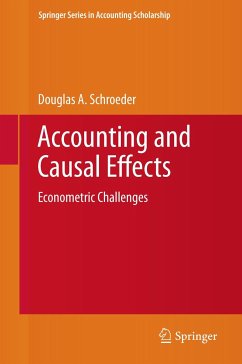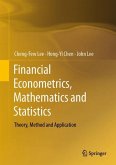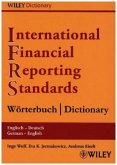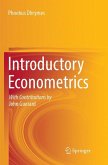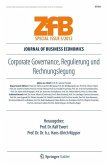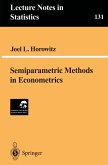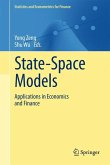While there is a substantial literature in labor economics and microeconometrics directed toward endogenous causal effects, causal effects have received relatively limited attention in accounting. This volume builds on econometric foundations, including linear, discrete choice, and nonparametric regression models, to address challenging accounting issues characterized by microeconomic fundamentals and equilibrium reporting choices. Both classical and Bayesian strategies for identifying and estimating accounting treatment effects are discussed extensively. This distinctive resource for researchers and students explores interactions among theory, data, and model specification considerations, and complements contemporary econometrics and statistics, as well as accounting.
In this book, we synthesize a rich and vast literature on econometric challenges associated with accounting choices and their causal effects. Identi?cation and es- mation of endogenous causal effects is particularly challenging as observable data are rarely directly linked to the causal effect of interest. A common strategy is to employ logically consistent probability assessment via Bayes' theorem to connect observable data to the causal effect of interest. For example, the implications of earnings management as equilibrium reporting behavior is a centerpiece of our explorations. Rather than offering recipes or algorithms, the book surveys our - periences with accounting and econometrics. That is, we focus on why rather than how. The book can be utilized in a variety of venues. On the surface it is geared - ward graduate studies and surely this is where its roots lie. If we're serious about our studies, that is, if we tackle interesting and challenging problems, then there is a natural progression. Our research addresses problems that are not well - derstood then incorporates them throughout our curricula as our understanding improves and to improve our understanding (in other words, learning and c- riculum development are endogenous). For accounting to be a vibrant academic discipline, we believe it is essential these issues be confronted in the undergr- uate classroom as well as graduate studies. We hope we've made some progress with examples which will encourage these developments.
In this book, we synthesize a rich and vast literature on econometric challenges associated with accounting choices and their causal effects. Identi?cation and es- mation of endogenous causal effects is particularly challenging as observable data are rarely directly linked to the causal effect of interest. A common strategy is to employ logically consistent probability assessment via Bayes' theorem to connect observable data to the causal effect of interest. For example, the implications of earnings management as equilibrium reporting behavior is a centerpiece of our explorations. Rather than offering recipes or algorithms, the book surveys our - periences with accounting and econometrics. That is, we focus on why rather than how. The book can be utilized in a variety of venues. On the surface it is geared - ward graduate studies and surely this is where its roots lie. If we're serious about our studies, that is, if we tackle interesting and challenging problems, then there is a natural progression. Our research addresses problems that are not well - derstood then incorporates them throughout our curricula as our understanding improves and to improve our understanding (in other words, learning and c- riculum development are endogenous). For accounting to be a vibrant academic discipline, we believe it is essential these issues be confronted in the undergr- uate classroom as well as graduate studies. We hope we've made some progress with examples which will encourage these developments.

